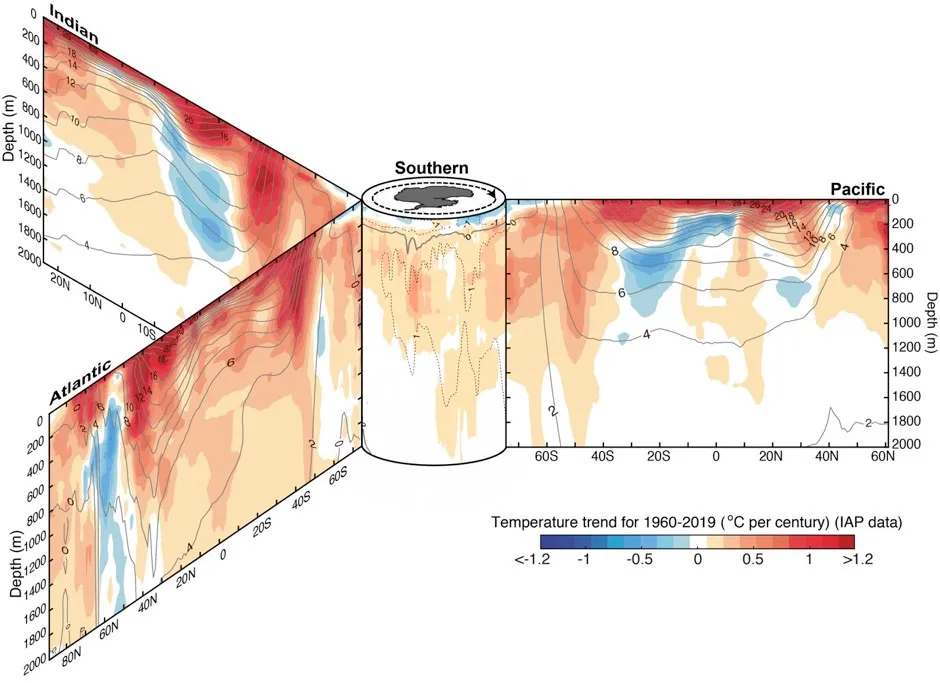Our oceans were warmer in 2019 than they’ve been at any other time in recorded human history, according to a new analysis.
The team of scientists, based at 11 institutes in China and the US, found that the past five years have collectively been the warmest on record for global ocean temperatures.
Their analysis, which was developed at the Institute of Atmospheric Physics (IAP) in Beijing, China, used observational records to calculate ocean temperatures down to a depth of 2km, with any data gaps filled in using a computer model.
The researchers found that the 2019 ocean temperature was about 0.075 degrees Celsius above the 1981-2010 average.
This might not sound like much, but it corresponds to an increase in ocean heat of 228,000,000,000,000,000,000,000 (228 sextillion) joules.
“That's a lot of zeros indeed,” said lead author Dr Lijing Cheng at IAP’s International Center for Climate and Environment Sciences. “To make it easier to understand, I did a calculation. The Hiroshima atom bomb exploded with an energy of about 63,000,000,000,000 joules. The amount of heat we have put in the world’s oceans in the past 25 years equals to 3.6 billion Hiroshima … explosions.”
“This measured ocean warming is irrefutable and is further proof of global warming,” added Cheng. “There are no reasonable alternatives aside from the human emissions of heat-trapping gases to explain this heating.”
Read more about climate change:
- Climate change: should we change the terminology?
- Children among the worst hit by climate change
- Climate change causing Mongolian 'eternal ice' to melt
- Antibiotic resistance: is it really as bad as climate change?
The researchers say that the rate of ocean warming can be reduced if we reduce our greenhouse gas emissions.
However, they caution that the ocean is slower to respond and equilibrate than the atmosphere, and ocean temperatures will continue to rise even after greenhouse gas levels have been stabilised.
Warmer ocean temperatures lead to increased evaporation, which in turn contributes to more extreme weather events across the globe, such as flooding, hurricanes and wildfires.

“The global heating has led to an increase in catastrophic fires in the Amazon, California and Australia in 2019, and we’re seeing that continue into 2020,” Dr Cheng said.
The researchers warn that the ocean warming trend is so severe that it will persist in the immediate future even if the global community meets its Paris Agreement targets.
“This is just the tip of the iceberg for what is to come,” said Dr John Abraham, study co-author at the University of St. Thomas in Minnesota, US. “Fortunately, we can do something about it: we can use energy more wisely and we can diversify our energy sources. We have the power to reduce this problem.”